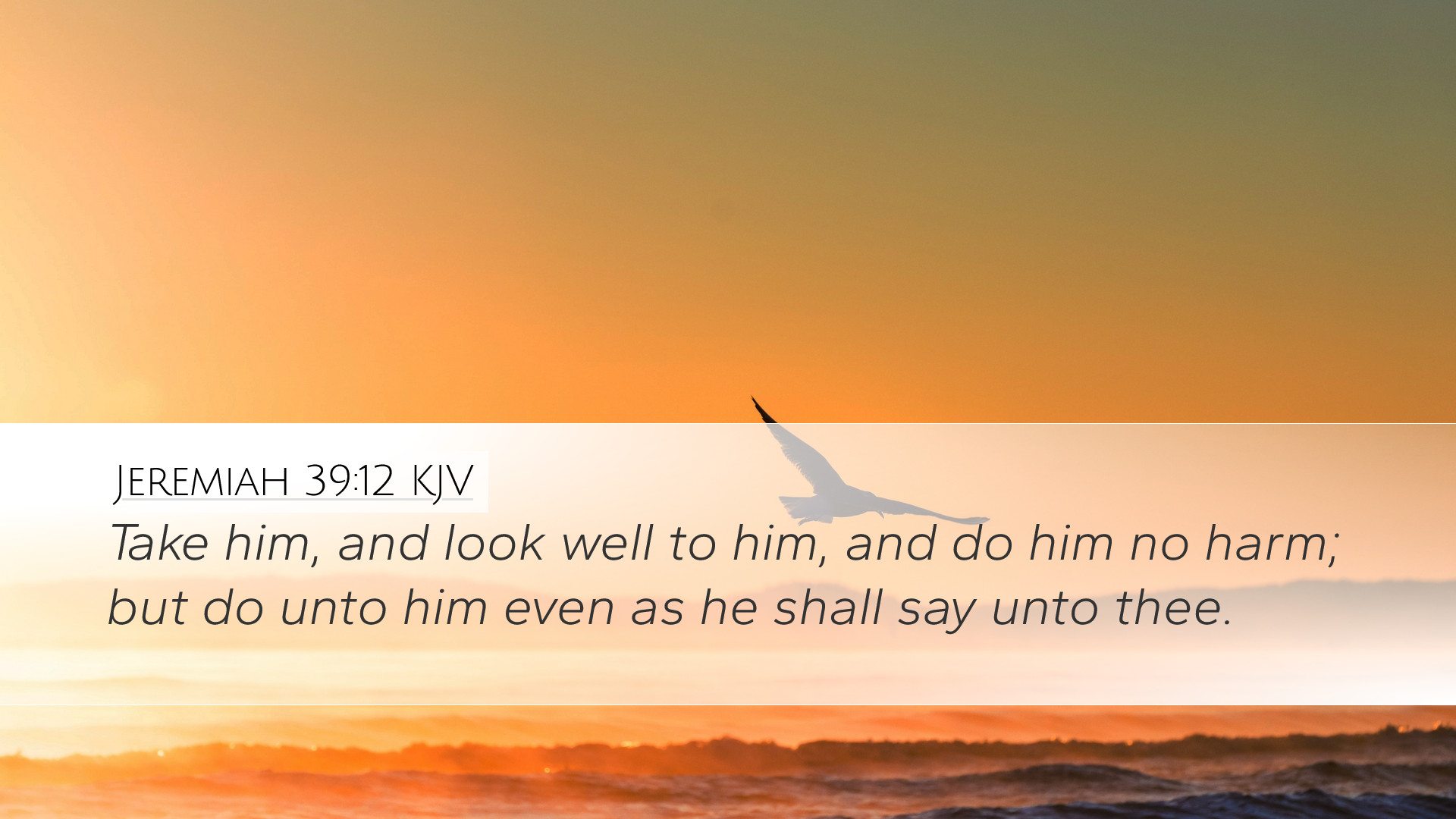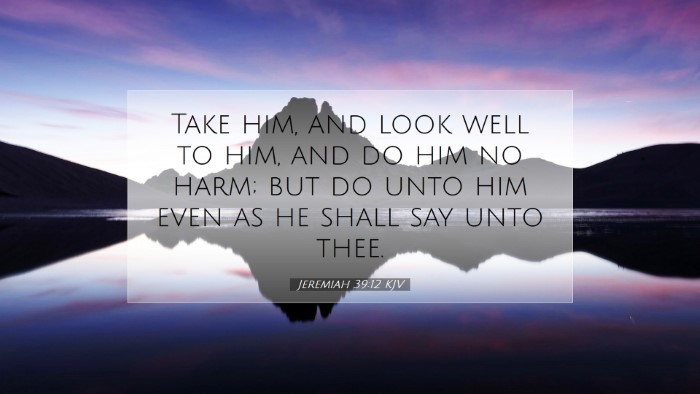Commentary on Jeremiah 39:12
Jeremiah 39:12 states:
"Take him, and look well to him, and do him no harm; but do unto him even as he shall say unto thee."
Introduction
This verse occurs at a critical juncture in the narrative of Jeremiah, marking the fall of Jerusalem and the prophetic and historical significance of God's judgments. The instructions to safeguard Jeremiah reveal the complexities of divine providence amidst human calamity.
General Observations
The events surrounding the fall of Jerusalem provide a backdrop for understanding the role of Jeremiah as a prophet and messenger of God.
- His prophecies, often met with resistance, reflect God's unyielding commitment to both judgment and mercy.
- The protection offered to Jeremiah illustrates a divine imperative to preserve His prophet amidst social and political upheaval.
Insights from Matthew Henry
Matthew Henry, in his comprehensive commentary, emphasizes the providential care God has for His servants. He notes:
- Jeremiah's Integrity: Despite being in the midst of destruction, Jeremiah's prophetic standing remains intact. His honesty and commitment to God's message make him a recipient of divine protection.
- Divine Intervention: The orders given by Nebuchadnezzar's captain to protect Jeremiah signify God's hand at work, affirming the role of prophets during critical historical transitions.
- Hope and Restoration: Henry draws attention to how God does not forget His people, illustrating that even in judgment, there is a promise of eventual hope and restoration.
Insights from Albert Barnes
Albert Barnes highlights key aspects of the theological implications of this verse as relevant to Christian faith and practice:
- God's Sovereignty: The protection of Jeremiah amid Jerusalem's destruction serves as evidence of God's sovereignty over nations and human affairs. Barnes points out that no harm will come to Jeremiah because he is executing a divine mission.
- Misunderstanding Prophetic Ministry: The verse symbolizes the often-misunderstood role of prophets. While they deliver difficult messages of judgment, they are also instruments of God's mercy.
- The Role of Authority: Barnes underscores the importance of authority in interpreting God's will through His prophets, exemplifying that God's message transcends earthly powers.
Insights from Adam Clarke
Adam Clarke, known for his detailed exegesis, offers additional dimensions that enrich our understanding:
- Historical Context: Clarke places this event within the broader context of Jewish history, explaining that the preservation of Jeremiah corresponds with God’s ongoing covenant with Israel.
- Mercy in Judgment: He speaks to the theme of divine mercy, arguing that protection of Jeremiah serves as a microcosm of God’s enduring relationship with His people, even during times of severe discipline.
- Character of God: Clarke emphasizes God's overarching character—He is both just and merciful, fulfilling His promises even as His people face the consequences of their actions.
Theological Implications
From the commentaries discussed, we can derive several key theological implications:
- God’s Providence: This narrative encourages believers to recognize God's providential hand in their lives, even amidst trials. It challenges believers to trust in God’s plans, which often surpass human understanding.
- The Role of the Prophet: Jeremiah's experiences highlight the importance of prophetic voices in the life of the community. Those called to deliver God’s message must be regarded with care and respect.
- Hope Amidst Judgment: This verse assures believers that even during divine judgment, there exists a pathway for hope and restoration, a recurrent theme throughout the prophetic literature.
Conclusion
Jeremiah 39:12 illustrates profound theological truths about divine protection, the responsibilities of prophetic ministry, and the hope embedded within God's judgments. This commentary, synthesizing perspectives from Matthew Henry, Albert Barnes, and Adam Clarke, encourages today's believers, pastors, students, and theologians to grasp the larger narrative of God's faithfulness and call to righteousness, even amidst tumultuous times.


